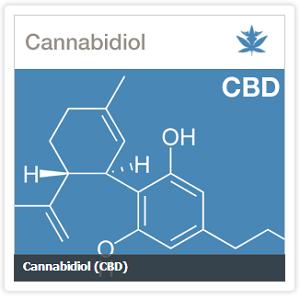
CBD OIL LICENSES GRANTED BY THE MISSOURI DEPARTMENT OF AGRICULTURE
Amber Iris Langston
(March 2, 2015)

For the first time since World War II, Missourians are allowed to legally grow marijuana. This week, the Missouri Department of Agriculture announced licenses for two recently created non-profits — Beleaf and Noah’s Arc — which will allow them to grow cannabis, produce a low-THC oil, and distribute that oil to an estimated 950 Missouri patients suffering from intractable epilepsy.
Each non-profit will be charged with the responsibility of tracking the cannabis from “seed to sale” and having oversight each step of the way in an effort to minimize potential holes in the system where cannabis might be used for any other purpose. A good idea in theory, Colorado attempted the same thing until the state quickly realized the impracticality of such a process. First, costs increase drastically with every piece of the puzzle required. Farming, oil extraction, and sales are all very different processes which all exist as separate industries in their own right. Not only is it difficult to be an expert in everything, creating such a rigorous standard pretty much guarantees that there will be quality control issues as there is no competition for who is the best at these services at the individual level.
This is also the same problem with a non-profit model. While on the face, it seems like a good idea to have an organization that doesn’t “profit” distributing medicine, the fact remains that there is certain to be a profit — particularly when only two companies are selling the product. Lack of competition means greater cost to consumers. Currently, a 10 mL tube of CBD oil in Colorado costs about $300 and lasts for about two weeks. Of course, that is just what is recommended as an herbal supplement, so it is difficult to say how much a patient will actually need. Regardless, this is certain to be cost-prohibitive for many patients who live on a limited income.
There is also an unfortunate consequence that all “non-usable” parts of the plant are to be destroyed under current guidelines. But when it comes to cannabis, pretty much every part is usable. Enormous amounts of cannabis biomass will have to be destroyed in this process which could otherwise be used for productive purposes. That leftover biomass could be utilized for biofuel, for making fiberglass, or for making hempcrete in building construction. On a side note, if the law would allow for cannabis plants that have high THC to be grown, then there would be less biomass weight. Low THC concentrations in a cannabis plant also means lower CBD concentrations, thus requiring more plants to be grown. But that’s another story.
Obviously, if the Missouri General Assembly moves forward on full medical marijuana this session, this current system of cannabis regulation in Missouri will be largely moot. However, in the event that we do not pass a whole-plant law by May, Senator Joe Keaveny has introduced SB 386, which would, at minimum, expand the illnesses which are treatable under the CBD oil law to include cancer, HIV, AIDS, amyotrophic lateral sclerosis, Parkinson’s disease, multiple sclerosis, spinal cord damage, inflammatory bowel disease, neuropathies, Huntington’s disease, post-traumatic stress disorder, or certain specified symptoms or complications associated with these conditions. The bill would also expand the number of nonprofit licenses to ten, which could mean up to 30 state dispensaries.
While we don’t know yet when all the Missouri patients who need marijuana as a medicine will get it, one thing is for certain, the first seeds of cannabis will be planted here in the coming weeks, and many more are sure to come.
http://www.theweedblog.com/cbd-oil-licenses-granted-by-the-missouri-department-of-agriculture/
